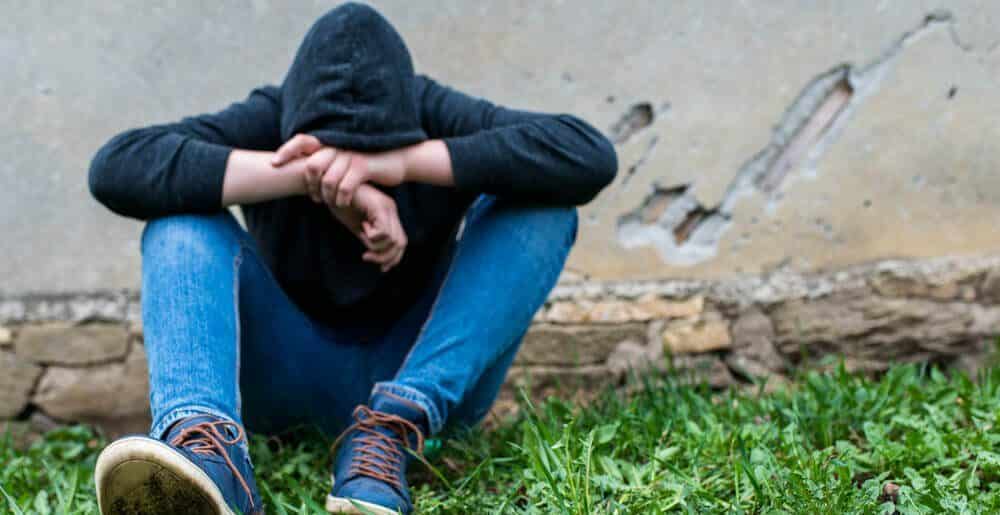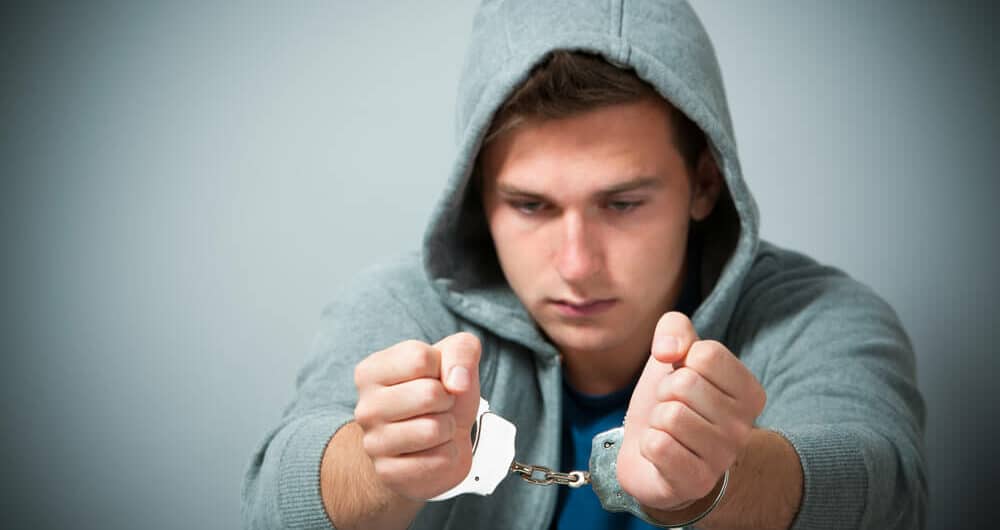One of the most important lessons learned throughout childhood is that making mistakes is okay. However, certain kinds of mistakes or errors in judgment can leave your child in hot water with the law, potentially putting their future in jeopardy.
Juvenile crimes can have steep consequences. Just because an offender is under the age of eighteen does not mean their slate is wiped clean after reaching their milestone birthday. Many of the most common juvenile criminal charges may have more long-term impacts on your child or teen’s future than you might think.
Kinds of Juvenile Offenses
According to recent US Department of Justice studies, juvenile crime statistics have dropped in recent years. However, instances of underage individuals breaking the law are still bound to happen because kids can be highly impulsive. Some of the most typical types of juvenile crimes include:
- Vandalism
- Theft/shoplifting
- Underage drinking/drug possession
- Assault
- Domestic violence
- Sexual offenses
- Internet crimes
- Age-related status offenses
Of course, the offenses listed above don’t even begin to cover the possible crimes young people primarily commit, and some are more serious charges than others. Regardless of the kind of crime that your child allegedly takes part in, the potential for harsh punishment and future lifelong consequences is always there.
Juvenile Crime Consequences
The goal of the juvenile justice system in the United States isn’t necessarily to punish children after they commit an offense but rather to provide them with the resources they need to be rehabilitated from their bad behavior before it’s too late. Juvenile crimes most often result in the following kinds of fines, punishments, and consequences:
- Home confinement or house arrest requires the offender to wear a tracking device 24/7 to monitor their movements and ensure they remain at home besides exceptions for school, work, and other essential activities.
- Juvenile detention facilities where children stay away from home and complete their sentences alongside other offenders, participating in group counseling sessions, rehabilitation programs, and education.
- Juvenile diversion programs completed pre-trial and aim to rehabilitate bad behavior before placing the offender into the system. Charges are dropped on occasion after successfully finishing a juvenile diversion program.
- Community service options can vary by case but are usually a condition of a person’s probationary terms.
- Foster or group home placement may be applicable when an offender’s home situation contributes to their continued bad behavior.
- Fines may be issued to cover any property damages, or payment for emotional distress to the plaintiff can be required.
The idea of your young child or teenager leaving home to complete a diversion program or juvenile sentence can, of course, seem scary. These consequences often continue to have accumulating repercussions for your child well into adulthood, so it’s essential to be aware of each one and take action with a trusted juvenile crimes attorney after your child is charged. You’re not just fighting for your child’s innocence in these matters, but their future as well.

8 Long-Term Impacts of Juvenile Charges
After a child or teen commits a juvenile offense and is ultimately convicted of a crime, that charge on their record can have lasting repercussions on their ability to flourish in the future. Parents must take the proper steps after juvenile crimes to ensure their child’s future is still secure. Here are just a few of the unfortunate ways juvenile charges can impact your child’s future:
1. College Acceptance
One of the primary concerns parents have after a juvenile offense is the level of impact the charges can have on their child’s college applications. Over 70% of four-year colleges and universities in the United States will inquire about applicants’ criminal backgrounds before offering them acceptance into their programs. That number jumps up to 81% for private institutions. Serious juvenile charges have the potential to follow your child all the way to college. They can hinder their chances of obtaining a higher education and ultimately achieving their dream career.
2. Employment
Job applicants often have to disclose their criminal record or pass a background check before being hired for a position in the college admissions process. Since there is such a harsh stigma against convicted people, having a juvenile record can pose a challenge when your child attempts to find work or jump start their career.
3. Housing Options
Similar to jobs and schools, some home loans or rental applications require the interested party to pass a background check before they are approved. Many property managers and home sellers have strict requirements regarding criminal records and can turn down an applicant based on their past. Juvenile charges put your child’s ability to find adequate housing as an adult at risk.
4. Driving Privileges
Depending on the type of offense that occurs, your child can sometimes lose their driver’s license and no longer provide themselves with sufficient transportation. This is most common in DWI cases and can create a lot of additional stress for everyone in your household, especially if you have to worry about getting your child to and from work or school while also attending to your own obligations.
Losing driving privileges after a juvenile charge can also put emotional and mental strains on your child since they can no longer freely move about their day and socialize with friends outside of the home.
5. Financial Strains
Another issue that juvenile offenders often face is financial strain. After a juvenile conviction, the defendant typically pays any necessary fines or restitution and damages to the affected parties. This can place a heavy financial burden on both the accused child and their family. Many parents must dig into accounts like college or retirement savings to pay what is owed, which can cause irreversible economic damage to the family and dash the child’s dreams of a car, college, and more.
6. Firearm Privileges
When aggravated juvenile crimes are committed, the courts might think that the offender cannot handle a firearm safely. If your child or teen is convicted of a juvenile offense such as aggravated assault, domestic violence charges, or other violent crimes, they may be legally barred from purchasing and carrying a firearm for months, years, or potentially indefinitely.
7. Immigration Status
Juvenile offenses committed by a non-citizen can adversely impact the offender’s immigration status or even their ability to stay in the country. Certain situations can call for inadmissibility of immigration status in court. Still, in most cases, a juvenile crime or delinquency will undoubtedly affect a child or teen’s ability to obtain citizenship in the future or avoid removal from the country.
8. Adult Sentencing
Many families falsely believe that juvenile criminal charges can simply disappear the second someone turns eighteen. Unfortunately, that isn’t how the system works, and those charges can stick with your child for many more years.
Juvenile records often play a critical role in determining the sentencing or consequences of a future criminal charge. If a juvenile criminal charge is very serious and stays unsealed on record, that first offense can cause the courts to impart a longer sentence, stricter conditions, or harsher financial penalties if your child potentially winds up in adult court later on in life.
You and Your Child Are Not Alone
When your child is charged with a juvenile crime, you might be worried about what will happen to their future. It’s easy to get overwhelmed by the juvenile justice system and let important things fall through the cracks that can impact your child’s life moving forward. That’s why it’s vital to partner with a reputable family and criminal defense attorney to represent your child or teen during this troubling time. An experienced family lawyer will know precisely how to navigate this delicate and nuanced process and can help protect your child’s future.
If your family is standing in the face of a juvenile criminal charge, you don’t have to deal with this challenge alone. Don’t hesitate to contact the team of family attorneys at CJB Law today to learn more about your options after a juvenile criminal charge and find hope for your child’s future.

